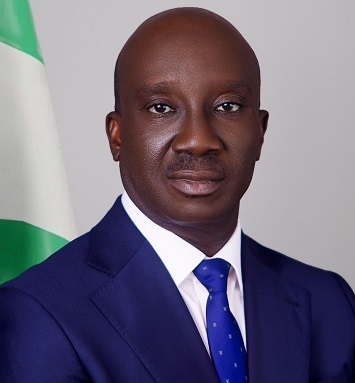Edo State has reaffirmed its pledge to sustain and broaden the impact of the Livelihood Improvement Family Enterprises in the Niger Delta (LIFE-ND) project, signaling a continued drive toward resilient rural livelihoods through agribusiness development.
The commitment came during the wrap-up of the Fifth Joint Supervision Mission of the Federal Government (FGN), the Niger Delta Development Commission (NDDC), and the International Fund for Agricultural Development (IFAD) LIFE-ND project, held in Benin.
Speaking on the milestone, Dr. Jerry Uwangue, Edo’s Commissioner for Agriculture and Food Security, framed LIFE-ND as a cornerstone of the state’s broader strategy to diversify the economy, bolster food systems, and create tangible market opportunities for farmers and small-scale enterprises.
He noted that the eight-day mission marked a significant checkpoint for the collaboration between Edo, IFAD, and NDDC, underscoring progress in rural empowerment, youth employment, and transformative food sector initiatives across the Niger Delta.
Uwangue highlighted Edo’s plan to leverage LIFE-ND and the proposed LIFE-ND Plus initiative to consolidate gains and extend benefits to more communities and beneficiaries. He emphasized that agriculture remains central to the state’s economic diversification agenda, with a focus on strengthening value chains, promoting value addition, and expanding access to markets for farmers and agribusinesses.
Representing IFAD, Dede Ekoue—the IFAD Country Director in Nigeria—via the Country Programme Analyst, Dr. Ogunniyi Adebayo, described LIFE-ND as more than a development project; it is a movement of hope, resilience, and transformation for young Nigerians.
Adebayo commended the beneficiaries’ innovation and enterprise, noting that the project has unlocked productivity among youths and women and expressing IFAD’s readiness to scale successful aspects of the program through additional financing.
Dr. Abiodun Sanni, National Project Coordinator for LIFE-ND, stated that the mission provided a vital platform to assess progress, share lessons, and reinforce sustainability strategies. He called LIFE-ND a model of partnership that empowers youths and women, builds viable agribusinesses, and promotes inclusive rural transformation, while identifying access to finance and climate resilience as key priorities going forward.
In his closing remarks, Edo’s Project Coordinator, Mr. John Omoruyi, thanked the Mission Team for their professionalism and constructive feedback. He asserted that the insights gathered would strengthen project delivery and long-term impact, and he reaffirmed the Edo Government’s commitment to implementing agreed action points with renewed energy and accountability.
The mission brought together representatives from the FG, NDDC, IFAD, and participating states to review project performance, engage beneficiaries, and chart a roadmap for the next phase of LIFE-ND.
The discussions centered on sustaining momentum, expanding beneficiaries, and aligning interventions with local needs—particularly for youth and women—while prioritizing financial access, climate resilience, and scalable agribusiness opportunities.

